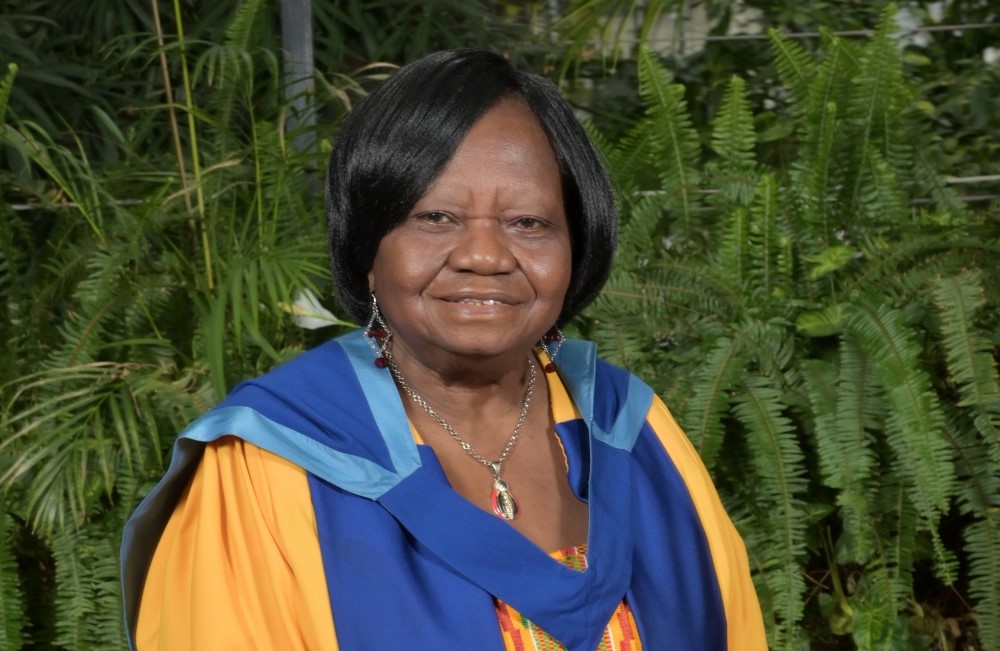OU News
News from The Open University
- Home
- Honour for bereaved Bedfordshire mother whose work has improved life for those living with sickle cell
Honour for bereaved Bedfordshire mother whose work has improved life for those living with sickle cell
Posted on • Honorary Graduate, University news

A bereaved mother from Leighton Buzzard, Bedfordshire, whose daughter died from sickle cell disease 25 years ago, has been awarded an honorary doctorate by The Open University for her work to raise awareness of the condition ever since.

Cecilia’s daughter Lorraine Gyeko Shoetan
Cecilia Ayisi-Shoetan, formerly from Romford but now living in Leighton Buzzard, has campaigned to help improve the lives of thousands of people with the disease and other blood disorders following the death of daughter Lorraine, 24, in 2000.
Now she has received the award of Doctor of the University for her work campaigning to improve healthcare provision for those affected by the disease.
On being given the award Cecilia said:
“I’m gratefully honoured and proud of this prestigious award. Though I never expected this, I’m delighted for the recognition of the work I did to help individuals and families living with the conditions and promoting awareness.”
Universal screening of all pregnant women
Since her retirement in 2002, the former nurse and midwife, who settled in the UK from Ghana in the 1970s to study and work with the NHS, has worked alongside the Sickle Cell Society following her studies in blood disorders, known collectively as haemoglobinopathy.
There, she became a regional co-ordinator and has helped ensure the universal screening of all pregnant women and new-born babies in the UK, regardless of race or colour, for sickle cell and thalassaemia.
Thanks in part to her efforts, there’s a specialist unit for sickle cell and thalassaemia at Romford’s Queen’s University Hospital.
Support group for those affected
In addition to securing the support of local MPs, she also established a support group for those affected by sickle cell and thalassaemia in Barking, Dagenham and Havering now called Lorraine’s Sickle Cell and Thalassaemia Foundation.
As a result of her work, Cecilia’s efforts have been life-changing for many people in those areas and across Essex affected by these conditions.
Cecilia added:
“Thanks to the OU for selecting me for the award and all those who have helped me on the way for making the Foundation successful.
“Lorraine, with her smile and sweet infectious laughter would be proud of the achievements.”
Cecilia continues to support the charity and the cause which is so close to her heart. Recent research has now resulted in the approval of groundbreaking gene therapies available on the NHS for sickle cell patients, promising life-changing benefits.
- People with sickle cell develop unusually shaped red blood cells when they go into crisis leading to complications. These cells can block blood vessels, resulting in complications such as anaemia, acute pain, organ damage, stroke or heart failure. Though sickle cell disease can affect anyone, it is most common in people with African or Caribbean heritage.
- People with thalassaemia cannot produce enough red blood cells, therefore they are often anaemic and require regular blood transfusions. It is most common in people with heritage from the Mediterranean, India, Pakistan, Bangladesh, the Middle East, China and southeast Asia.